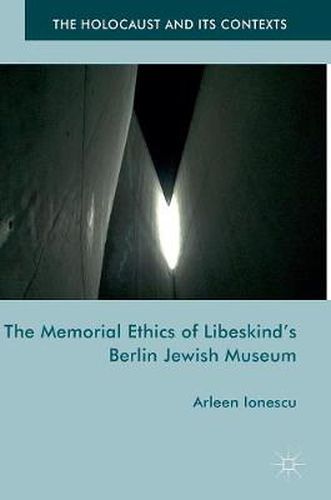Readings Newsletter
Become a Readings Member to make your shopping experience even easier.
Sign in or sign up for free!
You’re not far away from qualifying for FREE standard shipping within Australia
You’ve qualified for FREE standard shipping within Australia
The cart is loading…






This title is printed to order. This book may have been self-published. If so, we cannot guarantee the quality of the content. In the main most books will have gone through the editing process however some may not. We therefore suggest that you be aware of this before ordering this book. If in doubt check either the author or publisher’s details as we are unable to accept any returns unless they are faulty. Please contact us if you have any questions.
This book is a detailed critical study of Libeskind’s Berlin Jewish Museum in its historical, architectural and philosophical context. Emphasizing how the Holocaust changed our perception of history, memory, witnessing and representation, it develops the notion of ‘memorial ethics’ to explore the Museum’s difference from more conventional post-World War Two commemorative sites. The main focus is on the Museum as an experience of the materiality of trauma which engages the visitor in a performative duty to remember. Arleen Ionescu builds on Levinas’s idea of ‘ethics as optics’ to show how Libeskind’s Museum becomes a testimony to the unpresentable Other. Ionescu also extends the Museum’s experiential dimension by proposing her own subjective walk through Libeskind’s space reimagined as a ‘literary museum’. Featuring reflections on texts by Beckett, Celan, Derrida, Kafka, Blanchot, Wiesel and Selma Meerbaum-Eisinger (Celan’s cousin), this virtual tour concludes with a brief account of Libeskind’s analogous ‘healing project’ for Ground Zero.
$9.00 standard shipping within Australia
FREE standard shipping within Australia for orders over $100.00
Express & International shipping calculated at checkout
This title is printed to order. This book may have been self-published. If so, we cannot guarantee the quality of the content. In the main most books will have gone through the editing process however some may not. We therefore suggest that you be aware of this before ordering this book. If in doubt check either the author or publisher’s details as we are unable to accept any returns unless they are faulty. Please contact us if you have any questions.
This book is a detailed critical study of Libeskind’s Berlin Jewish Museum in its historical, architectural and philosophical context. Emphasizing how the Holocaust changed our perception of history, memory, witnessing and representation, it develops the notion of ‘memorial ethics’ to explore the Museum’s difference from more conventional post-World War Two commemorative sites. The main focus is on the Museum as an experience of the materiality of trauma which engages the visitor in a performative duty to remember. Arleen Ionescu builds on Levinas’s idea of ‘ethics as optics’ to show how Libeskind’s Museum becomes a testimony to the unpresentable Other. Ionescu also extends the Museum’s experiential dimension by proposing her own subjective walk through Libeskind’s space reimagined as a ‘literary museum’. Featuring reflections on texts by Beckett, Celan, Derrida, Kafka, Blanchot, Wiesel and Selma Meerbaum-Eisinger (Celan’s cousin), this virtual tour concludes with a brief account of Libeskind’s analogous ‘healing project’ for Ground Zero.